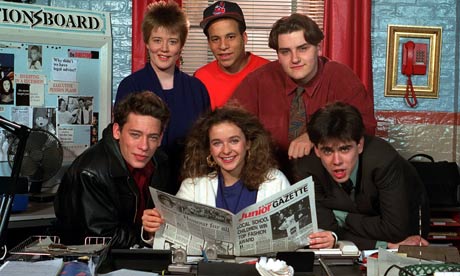
Ten years ago, my colleague called it around 5pm, shut down her computer and gathered her things to leave work. She mused: “I earned $200 today for what is, ostensibly, typing. What a world, eh?”
I laughed at the time but her words stuck with me. She was a newspaper editor and she managed a team of talented reporters but nevertheless, putting out a newspaper is no mean feat. And she did it every week by, ostensibly, typing.
Fast forward a couple of years and I am sitting at the masthead chief desk, meaning it’s my responsibility to send the daily metropolitan paper to press with a compelling and important mix of news articles, produced beautifully with no legal issues nor errors. I manage 38 copy editors and senior editorial staff to check facts, compare names, write headlines, punch up dull copy, and keep an eagle eye out for legal and ethical problems – all on an excruciatingly tight 10pm deadline.
Come next morning, the rolled-up paper would thud against my door but within 24 hours, it would be in the compost. So what did it matter what I produced? Why did I work my ass off for something so ephemeral? Because sometimes it’s the media with the least staying power that affects us the most.
The production of a newspaper is an incredibly complex and beautiful thing. It takes hundreds of people – from ad salespeople to designers, compositors, photographers, journalists, editors, managers, admin staff, IT and HR experts, videographers, social media managers and more. It’s a wonder it comes together at all – in fact, it’s frequently called “the daily miracle.”
All those people are not just working for the money, of course. In the case of editorial staff – journalists, editors and photographers – wages in real terms have dropped dramatically as newsprint has struggled to find a sustainable revenue model. (Aside: Join your union!) But they soldier on because they believe that it’s what the newspaper says that is important.
For something that is usually obsolete by 9am, the newspaper is surprisingly impactful. The Watergate scandal, the 2008 Global Financial Crisis, the Edward Snowden affair – all were broken by newspapers. The physical paper was mostly gone by the next day but the stories lived on and the impact of them is felt still.
Let’s look at something even more ephemeral – television. Prior to the YouTube era, virtually no one recorded the news unless it was your mom and she knew you’d be on it that night. Before we have VHS, networks frequently dumped TV shows too. The BBC, maker of Doctor Who, required copies of the cult classic to be returned or destroyed after screening around the world; and no one thought to keep backups (the cost of materials and storage being prohibitively expensive in those days). That means the world is currently missing 97 of the first Doctor Who 253 episodes.
These musicians have created media formats that disappear 24 hours after first listen. Fascinating.
So we know newspapers and music can have impact that far outlasts their physicality, and ephemeral Doctor Who episodes are clearly bad for fans but are there ways in which the short-term nature of media is actually a benefit?
This Message Will Self-Destruct…
Growing up in the 1980s with a fascination for computers, of course I loved Inspector Gadget. And unlike my instructions, which came from my parents or horrible teachers, Gadget’s assignments from the Chief came messages that would self-destruct 30 seconds after they’re read. How cool is that?
It turns out a Chief of our own has invented a messaging service that does just that – Snapchat. In theory, message recipients can only read your snap for 10 seconds before it’s automatically deleted. Despite some apparent evidence that it doesn’t work so well, users have flooded to the service and now send a collective 9000 snaps a second. That’s a whole lot of, well, nothing.
So apart from the Inspector Gadget coolness, what’s the appeal? Hybrid Reality Institute researcher Tarun Wadhwa wrote in Forbes that it was an escape from the pressure of being visible and permanent all the time on social media.
We have accepted the notion that what you do on the internet is permanent – a statement that is partially a truthful observation, and partially a threatening promise from the companies and entrepreneurs who are making it a reality – but it doesn’t have to be that way for everything.
What apps like these do is allow us a little bit more freedom to be ourselves, for better or worse.
That sounds pretty nice, actually.
